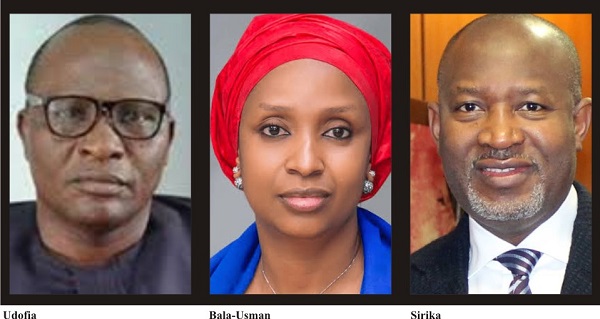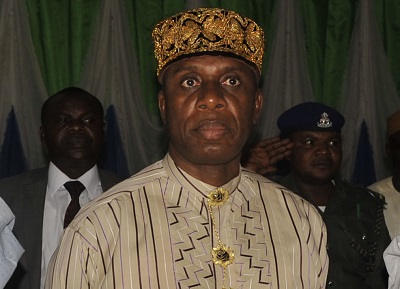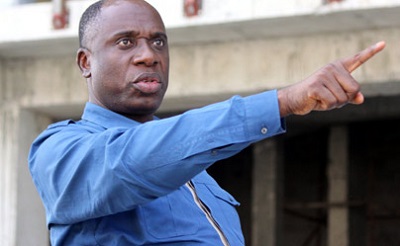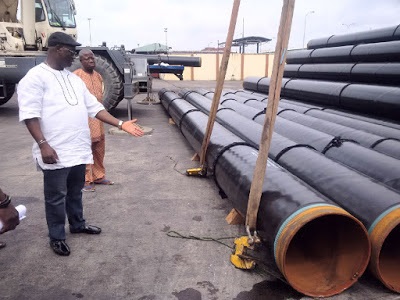Port Concession: Sad Tales At Nigerian Airports And Seaports

By Kenneth Jukpor
The gains of port concession are numerous; they include expeditious and efficient service delivery, variety and consequent competition, innovation, among others. These gains have been recorded at Nigerian seaports since the concession in 2006, however, new challenges have also been birthed. Unsurprisingly, similar success stories and ravaging effects have also been recorded at the airports.
Competitive pricing which should have resulted from competition have been jettisoned as operators set same rates and conspire to hike charges at will, without recourse to any Authority. This is because the ports were concessioned without the provision of an economic regulator.
The port environment suffered following the elimination of assets that would have guaranteed seamless operations at the seaports. The missing assets include, pertinent common-user areas such as; truck garages, container holding bays, export bays, cold storage facilities, among others.
These shortcomings can be linked to the empty container conundrum and haphazard movement of trucks which play a significant role in the traffic chaos that characterize Lagos port environs.
Experts posit that the 2006 seaport concession agreement is inimical to export, asserting that absence of export base and cold storage facilities makes it difficult for export to thrive in Nigeria. Meanwhile, the nation’s current economic disposition is targeted towards enhancing exports.
Given these challenges, coupled with the frivolous increase in charges by terminals and the introduction of additional arbitrary ones; it isn’t surprising to hear port stakeholders describe the recently concluded review of terminal operators’ agreement without stakeholders input as an ‘insult’ to the entire port sector.
At the nation’s airports, aspects such as the ground handling services at the Lagos international airport and the handling of the local airport have also been concessioned.
Like the seaports, the concession at the airports were done without the provision of an economic regulator.
In 2003, Bi-Courtney Limited was awarded the concession by the Federal Government to develop, finance, manage and operate the Murtala Muhammed Airport Terminal 2, Lagos and ancillary assets under a Design-Build-Operate-Transfer (DBOT) arrangement.
This arrangement has been plagued with endless fiscal conflicts and court cases ranging from the airport terminal building, multi-storey car park, an apron, a four-star hotel, among other issues.
The ground handling companies; Nigerian Aviation Handling Company (NAHCO) Plc and the Skyway Aviation Handling Company (SAHCO) haven’t fared better as they conspire to hike their charges, with the recent 70 percent landing them in court with freight agents.
The NAHCO and SAHCO hiked fees were signs of an emerging private monopoly in ground handling processes at the Murtala Mohammed International Airport (MMIA) and this has became humorous when both companies locked horns over Ethopian airlines cargoes few weeks ago.
Privatization ought to lead to competition with the customers enjoying variety; but NAHCO and SAHCO have enjoyed monopoly to increase their charges by 70% before coming down to 40% without consulting the Nigerian Civil Aviation Authority (NCAA) or Nigerian Shippers’ Council (NSC).
One would expect that the failures in the maiden seaport concession arrangement, a result of the shoddy and covert process, would have been sufficient motive for the recent review to be all-inclusive with regards getting all relevant stakeholders make input in the review; but that was just a mere expectation.
Nigerian Ports Authority (NPA) has come under severe criticism from freight agents following their covert handling of the review of terminal operators concession agreement which appears to have been concluded without input from any stakeholder at the ports.
The Authority reneged on earlier promises to hold stakeholders’ engagement after closed door meetings with the terminal operators, even as it argues that the agreement between itself and terminals is a contractual one not to be disclosed to other parties.
Speaking on the recent review of terminals concession agreement, the Chairman, Bayelsa and Rivers Shippers Association, Mr. Ofon Udofia said; “Shippers are appealing to NPA to put on hold that agreement because there were several flaws in the initial agreement. A proper agreement would require stakeholders input to highlight these flaws and proffer solutions”
He posited that the maiden agreement had provision for an economic regulator even though there wasn’t one at that time, therefore, he appealed to NPA to avail Shippers’ Council the reviewed document to study and make input on economic aspects such as tariffs and rates.
“Shippers own the cargoes that come through the ports. We should have a say in this. Nigerian ports are the most expensive in the sub-region and this explains why people go to Ghana and Benin to clear their goods. Any challenge in this review would affect the nation and its citizens because the final cost of using the terminals would be added to prices of goods and services”, Udofia told MMS Plus newspaper.
According to him, Nigerian ports have their peculiarities and the World Bank topnotch team couldn’t have identified the challenges indigenous operators would have highlighted.
Last week, a freight forwarding group, Africa Association of Professional Freight Forwarders and Logistics on Nigeria (APFFLON) described the terminal operators’ concession agreement review as an insult to all stakeholders operating at the nation’s ports.
The President of APFFLON, Mr. Frank Ogunojemite made this remark, even as he lamented that Shippers’ Council as the port economic regulator should be privy to the review of the terminals agreement.
“We are talking of the port economic regulator which is Shippers’ Council. Why should they be excluded from such critical development? This is obviously a tussle for power and influence in the port sector but it is uncalled for. NPA should realize that it would subject the nation’s port sector to numerous challenges that would have been highlighted if stakeholders were given an opportunity to make input in the review,” he said.
According to him, the Minister of Transportation, Hon. Rotimi Amaechi should intervene to call NPA to order and ensure NSC, freight forwarders, shippers, Customs and other relevant stakeholders are allowed to make input on the review.
The initial port concession had the Bureau of Public Enterprises (BPE) midwife the agreement between NPA and the terminal operators even as it had a provision for an economic regulator not yet established in 2006.
With the emergence of Infrastructure Concession Regulatory Commission (ICRC), a more strategic agency saddled with concessions and the appointment of NSC as port economic regulator; industry stakeholders had expected these agencies to actively participate in the recent review.
However, these agencies as well as port stakeholders including the users of terminal operators services which are freight forwarders and shippers were also excluded.
According to the NPA Managing Director, Ms Hadiza Bala-Usman, a World Bank team developed the framework, concluded their assignment and proffered suggestions that guided the process of the review.
“We have written to the Attorney General of the Federation (AGF) and the office of the AGF responded on the supplemental agreement for the revised concession agreement,” the NPA boss told MMS Plus.
Stakeholders are also worried that the content of the reviewed document has not been divulged to the BPE, ICRC, NSC, terminal operators or other port stakeholders, but the NPA boss has assured that one of the integral parts of the review is that there is submission around compliance.
“If the government doesn’t adhere to the terms in the concession agreement there would be penalties for the government. Similarly, if the concessionaire also doesn’t meet its obligations there would be sanctions. There is objectivity and there are clear penalties for both sides. This is a key part of the concession agreement that we have been able to achieve”
“The concessionaires were very excited that World Bank team participated by providing technical support. It gave them confidence that the review wasn’t just in the interest of NPA as there was a third party that brought international best practices into the review”, the NPA Managing Director said.
Meanwhile, the Executive Secretary of NSC, Mr. Hassan Bello said he had written a protest to the Ministry of Transportation, adding that the last of the matter have not been heard as he is preparing to do a stronger protest to the Federal Government.
At the airports, the Minister of Aviation, Senator Hadi Sirika has mooted the idea of concessioning the major airports in the country as part of efforts to drive efficiency, innovativeness and competition, a crisis may ensue if this occurs without an independent economic regulator in the aviation sector.







